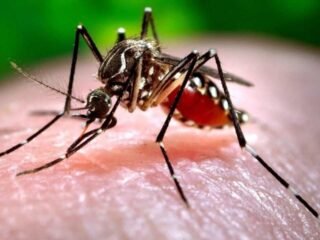New Delhi, 06 May 2025: A new study has raised alarms over the potential global health threat posed by the Aspergillus fungus, particularly species like Aspergillus fumigatus and Aspergillus flavus. These fungi thrive in warm, damp environments and are becoming increasingly prevalent due to rising global temperatures. The study warns that the world is approaching a “tipping point” where the spread of such fungal pathogens could become the norm.
“A killer fungus could spread through parts of Europe, Asia and the Americas, causing serious lung problems for vulnerable people due to rising temperatures, a new study has warned. Aspergillus, a type of fungus that thrives in warm, damp climates, has the potential to infect millions if it makes its way into the aforementioned regions,” the research quoted.
As per the study, the species can grow quickly in high temperatures in compost, which explains why it is able to thrive in the 37C internal temperature of the human body. Additionally, fungi’s resilience means they can survive and thrive in places that other organisms can’t, even inside Chernobyl’s nuclear reactors.
While inhaling the fungus’s spores does not make everyone ill, those with conditions such as asthma, cystic fibrosis or a weakened immune system remain at risk.
What Is Aspergillus Fungus?
Aspergillus spores are known to cause serious respiratory illnesses, especially in individuals with compromised immune systems, asthma, or cystic fibrosis. Invasive aspergillosis, a severe form of infection, has a high mortality rate and is difficult to treat due to increasing drug resistance. The World Health Organization has identified Aspergillus fumigatus as a critical priority pathogen .
The study projects that by 2100, Aspergillus fumigatus could expand its reach by 77%, potentially exposing an additional nine million people in Europe alone . Similarly, Aspergillus flavus is expected to spread to parts of northern China, Russia, Scandinavia, and Alaska. This expansion not only threatens human health but also poses risks to agriculture, as Aspergillus flavus produces aflatoxins that can contaminate crops and lead to liver damage .
Experts emphasize the urgent need for increased investment in antifungal research, improved diagnostics, and public health preparedness to mitigate the looming crisis. Without immediate action, the spread of these deadly fungi could have devastating consequences for global health and food security







